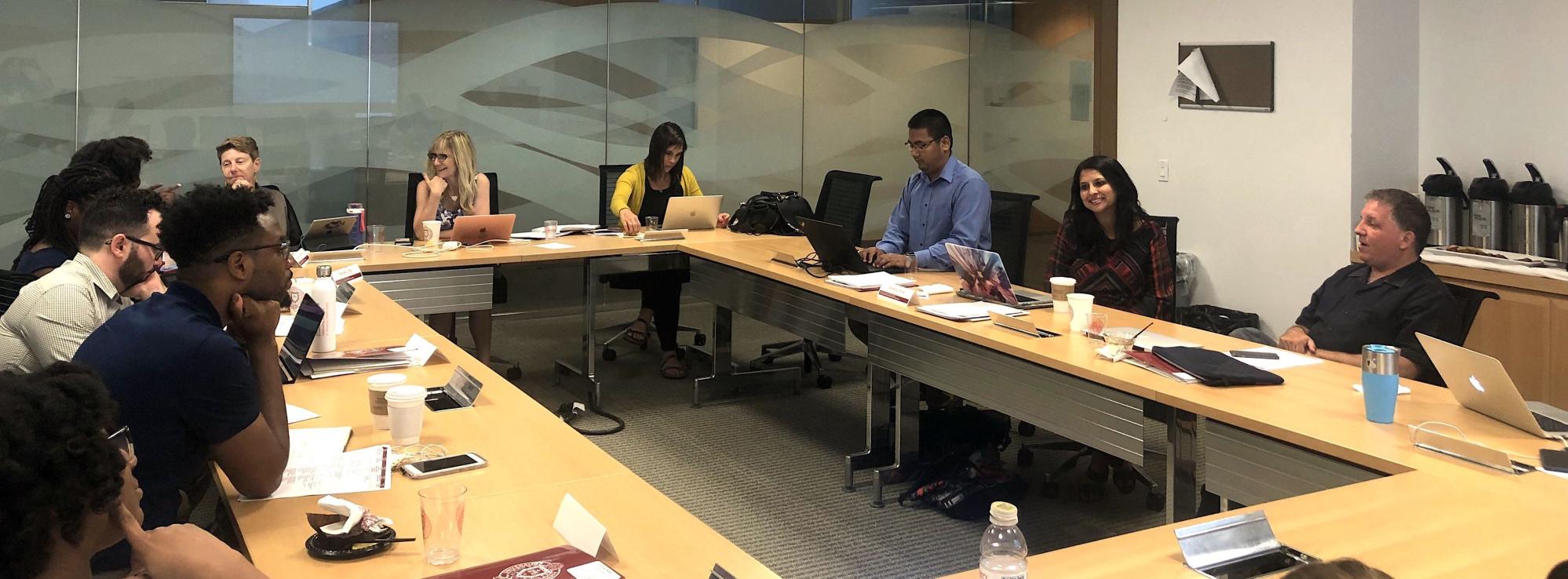About RETI

Director and Principal Investigator: Celia B. Fisher (Fordham University)
Supported by NIDA Grant #R25 DA 031608
Description
Now in its 13th year, the Fordham HIV and Drug Abuse Prevention Research Ethics Training Institute (RETI) is a training grant sponsored by the National Institute on Drug Abuse (NIDA) and directed by Celia B. Fisher, Director, Center for Ethics Education. The RETI provides early career investigators in the social, behavioral, medical and public health fields with an opportunity to gain research ethics training. A major function of the RETI is also to conduct a $30,000 small grant, institute-funded research project on ethical issues in HIV and drug use research. In doing so, RETI addresses the urgent need for HIV investigators who can identify and address ethical issues, engage drug-using and other at-risk communities in the construction and evaluation of population-sensitive research protections, and generate empirical data to inform ethical practice and policies for HIV prevention science. Through their funded Mentored Research Projects (MRP), RETI trainees generate empirical data, publish their findings in a variety of high-impact academic journals, and are trained to apply for increasing grant opportunities. Over fifty early career professionals have both extensively published their mentored research project (MRP) studies in high impact journals and/or given presentations internationally.
Aims of the HIV and Drug Abuse Prevention Research Ethics Training Institute
- Expand fellows' knowledge of and capacity to address key ethical issues in HIV prevention research with drug using and other at-risk communities
- Provide fellows with the skills to ethically engage participants and communities in the construction of participant protections that reflect the values and merit the trust of all stakeholders in HIV and drug abuse prevention research
- Increase fellows' capacity to conduct research that will generate data to inform HIV and drug abuse prevention research practices and policies
- Create and sustain an information and communication network for fellows, faculty and others in the field for enhancing ethical knowledge, ethical dialogue and future professional collaborations in HIV and drug abuse prevention research ethics
Why Study HIV and Drug Abuse Prevention Research Ethics?
The HIV and Drug Abuse Prevention Research Ethics Training Institute provides a unique opportunity for early-career HIV and drug use researchers to gain invaluable experience in the ever-expanding field of research ethics. Working with internationally renowned expert on research ethics, Dr. Celia B. Fisher, and other highly accomplished faculty members, RETI fellows are trained to design an empirical research study, analyze and publish their findings, facilitate approval of Institutional Review Boards, teach research ethics, and contribute to the emerging body of work on HIV and drug abuse research practices. RETI fellows join a growing group of early-career professionals in pioneering innovative ways to examine HIV and drug abuse research ethics. Past RETI fellows have published not only in ethics journals, but also in bio-medical journals, and other publications that are increasingly publishing ethics-relevant work.
Keywords: research ethics; HIV/AIDS prevention and treatment; addiction and substance abuse; vulnerable populations; people who use drugs (PWUD); LGBTQ; MSM; transgender youth and adults; racial/ethnic minorities; institutional review boards (IRB); community-engaged research (CEnR); research ethics education
Research Topics: trust/mistrust;
For an overview of the multidisciplinary RETI, please see the downloadable materials below.
- Fisher C. B. (2014). HIV Prevention Research Ethics: An Introduction to the Special Issue. Journal of Empirical Research on Human Research Ethics, 9, 1-5.
- Fisher C. B., Yuko E. (2015). The HIV and Drug Abuse Prevention Research Ethics Training Institute: Training early-career scientists to conduct research on research ethics. Journal of Empirical Research on Human Research Ethics, 10(5), 470-480.
- Fisher C. B. (2018). Ethics Training at the Forefront of HIV and Drug Abuse Research: A PowerPoint Overview of Fordham University's HIV and Drug Abuse Prevention Research Ethics Training Institute